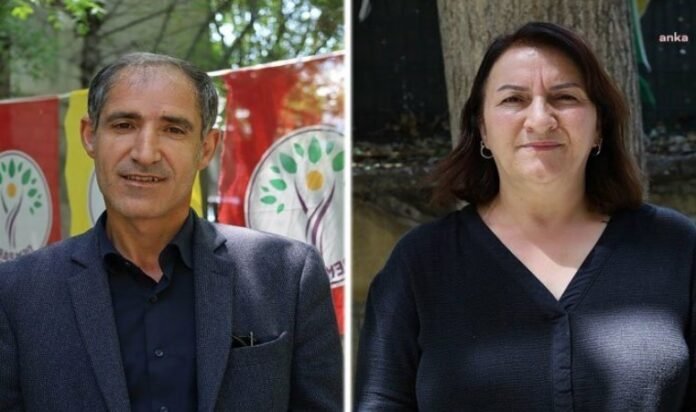Turkish police have detained Veysi Dilekçi and Gülşen Kurt, provincial co-chairs of the pro-Kurdish People’s Democracy and Equality Party (DEM Party), along with several others in the eastern province of Van, Turkish media reported on Tuesday.
Ordered by Van prosecutors, the detentions were carried out during house raids, although the total number of detainees remains unknown.
While the reports did not disclose the grounds for the detentions, the Duvar English news website said many of the detainees were people who attended a protest on Monday against previous detentions of people dancing to traditional Kurdish music.
DEM Party Co-chair Tuncer Bakırhan condemned the detentions on social media, describing them as a demonstration of the increasing anti-Kurdish sentiment in the country.
“These unlawful acts, arising from the hostility against Kurds, should end immediately, and our friends should be promptly released,” he tweeted.
The other DEM co-chair, Tülay Hatimoğulları, released a similar statement.
“Halay [a Kurdish folk dance] is not a crime. Kurdish traffic signs are not a crime,” she said, referring to the detention of people for dancing to Kurdish music and a recent incident where Kurdish-language traffic signs were defaced in an apparent racist attack.
The detention of wedding attendees for dancing to traditional Kurdish songs sparked a controversy as the detainees were accused of “spreading propaganda for a terrorist organization,” referring to the outlawed Kurdistan Workers’ Party (PKK), which is recognized as a terrorist organization by Turkey and its Western allies.
Turkey’s counterterrorism laws are often criticized for being overly vague, allowing too much room for interpretation, while the judiciary is widely described as being under executive control.
Prohibitions against the use of Kurdish in Turkey go back many years. Kurdish language, clothing, folklore and names were banned in 1937. The words “Kurds,” “Kurdistan” and “Kurdish” were among those officially prohibited. After a military coup in 1980, speaking Kurdish was formally forbidden, even in private life.
The visibility of Kurdish on TV and in the print media was only made possible in the early 2000s thanks to significant progress made in the country’s bid to become a member of the EU.
Yet, the drift towards nationalism and the ruling Justice and Development Party’s (AKP) alliance with the far-right Nationalist Movement Party (MHP) in the last decade has led to an increase in anti-Kurdish racist attacks.















